For a lot of people in the world, saying, "I'm sorry," is a huge personal step that can be difficult to come to terms with. Admitting you're wrong isn't always easy.
On the other hand, we all know people who tend to do the opposite — over-apologize. It doesn't make a whole lot of sense that someone would apologize for something like trying to get a waiter's attention, but we hear it all the time.
Some people, especially women, say "sorry" constantly, for things that are completely out of their control or don't warrant an apology at all.
We've all probably unnecessarily apologized for our appearance, feelings, the weather, or even for asking a question.
Now that you're reading this, it probably does feel a little silly to be "sorry" so often. But hey, over-apologizing happens to the best of us.
That said, it is a bad habit that we should try to kick. If you need to be convinced, read the eight good reasons below.
Thumbnail Photo: Public Domain Pictures / Stachowiak
What Exactly Does 'Sorry' Mean?
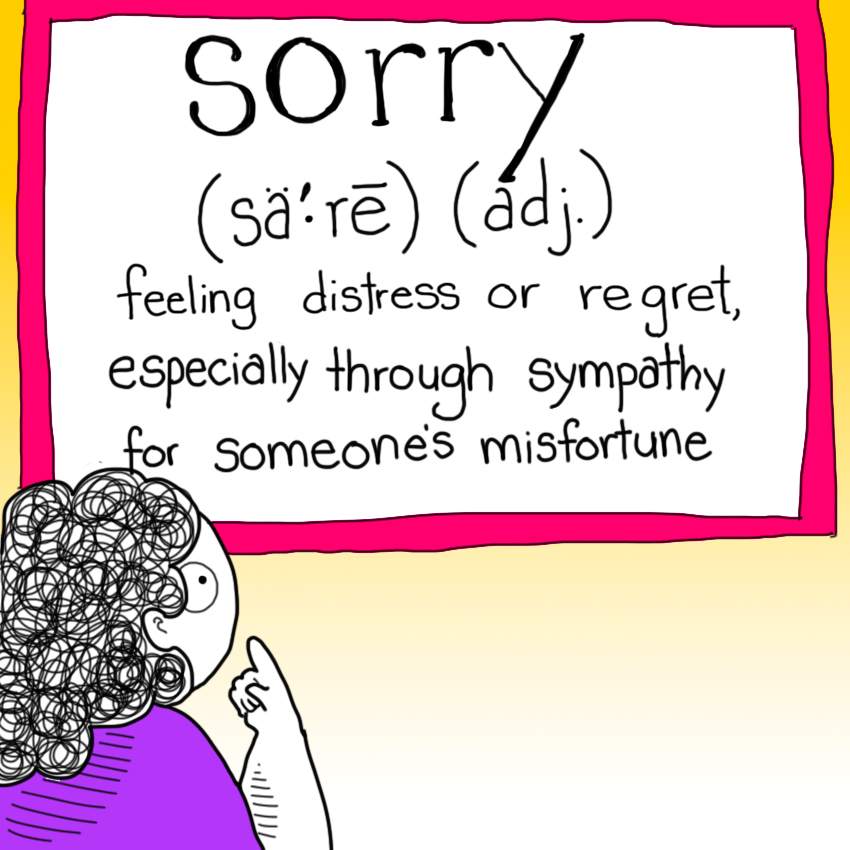
We are all familiar with the gist of what sorry means, but it's worth going back over while we're on the topic.
According to Merriam-Webster, sorry means, "inspiring sorrow, pity, scorn, or ridicule."
1. You Probably Don't Have Anything To Be Sorry For
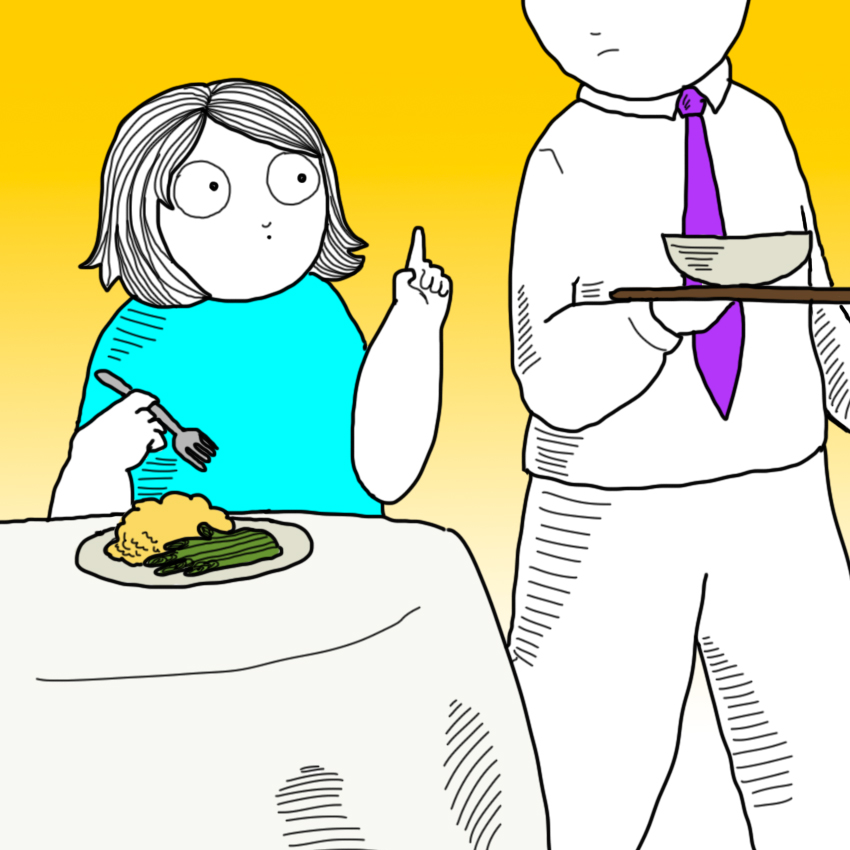
If you do something like hurt a loved one's feelings, you should definitely apologize.
However, asking for a waiter's attention isn't something you should be sorry about. You're a customer, and he or she is just doing their job!
Of course, you should also be polite, but there's no need to apologize.
2. It Makes You Seem Weak
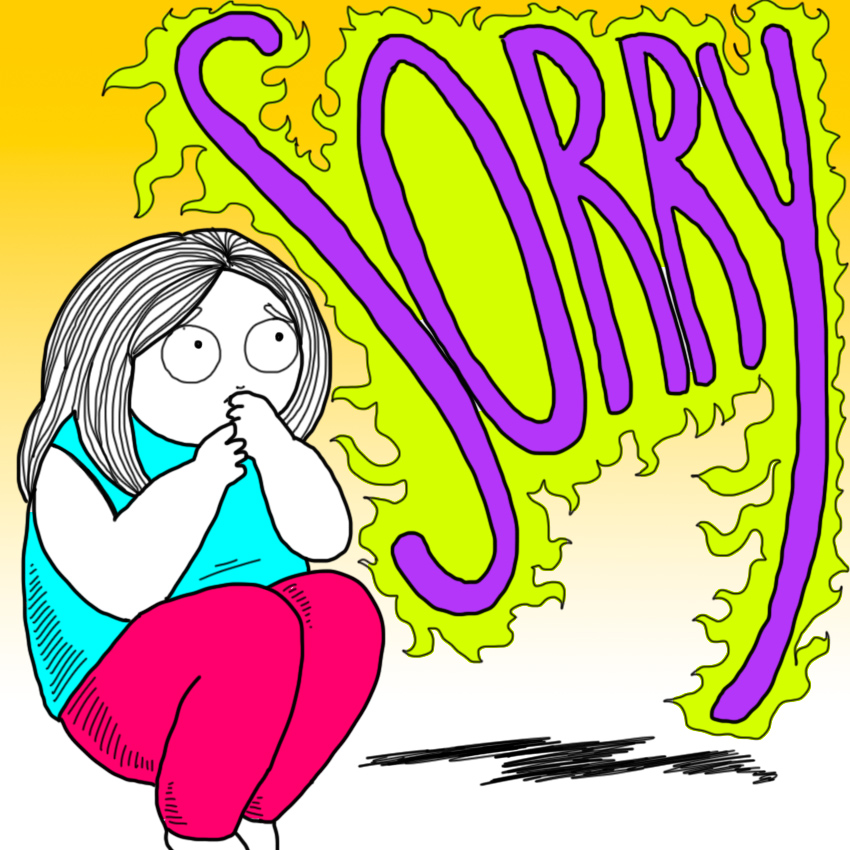
Saying sorry puts one in an inherently submissive position. By saying it, you're implying that you're seeking approval.
While there are certainly occasions where this is necessary, asking for permission to speak or help are definitely not examples of these occasions.
3. It Makes You Look Guilty
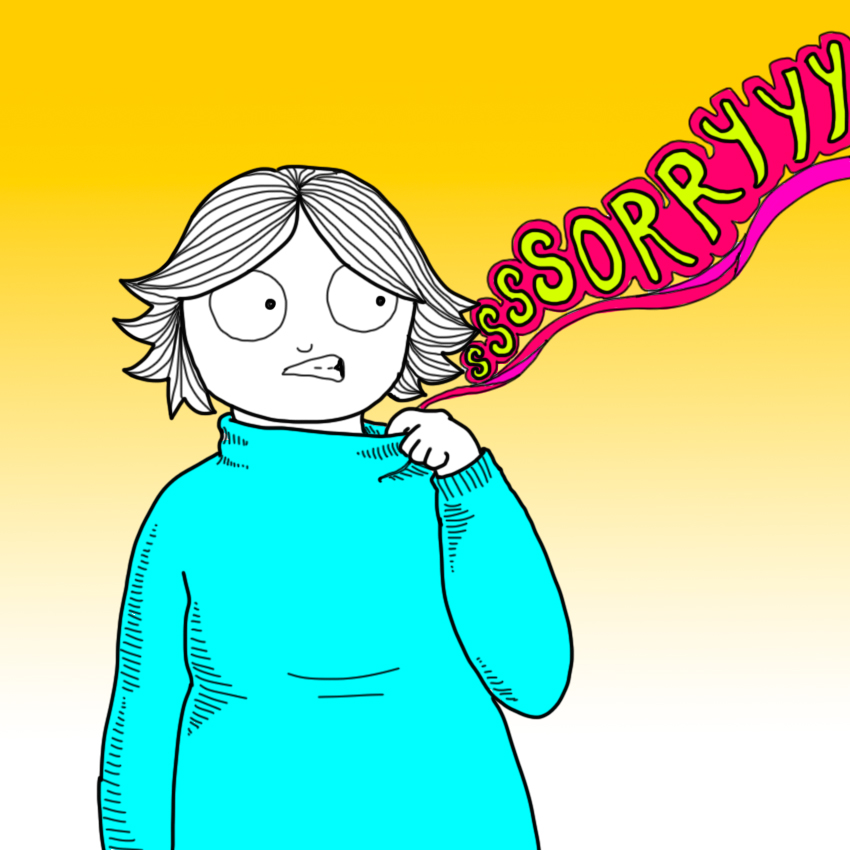
You may just be trying to be polite when you say sorry for something small, but it could be misinterpreted.
Being sorry goes hand in hand with having something to be guilty for, so if you don't feel guilty, there's no need to be sorry.
4. It Might Cause Unnecessary Guilt

While looking guilty to someone else is one thing, the most important reason why you shouldn't say sorry so much has more to do with you.
Carrying guilt is exhausting, and being "sorry" all the time probably makes you feel a little guilty for whatever it is you're sorry for.
Most of the time, a little mistake is nothing to feel guilty about, and you shouldn't let unnecessary baggage weigh you down.
5. It Can Be Annoying
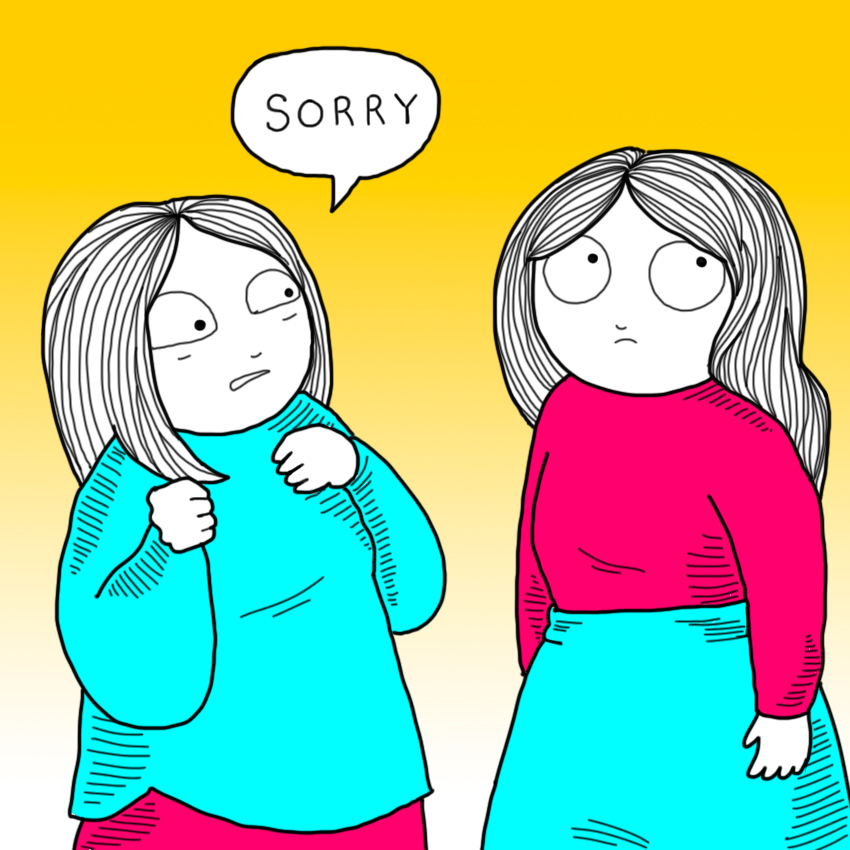
Have you ever been on the receiving end of an unnecessary apology? Or worse, has that happened over and over again?
If a friend is constantly apologizing to you for things that didn't offend or bother you at all, it can be a little irritating.
Sometimes you just want to shake them and say that it's OK. Instead of being sorry for being sorry, just cut down on the phrase.
6. Sorry Loses Its Meaning
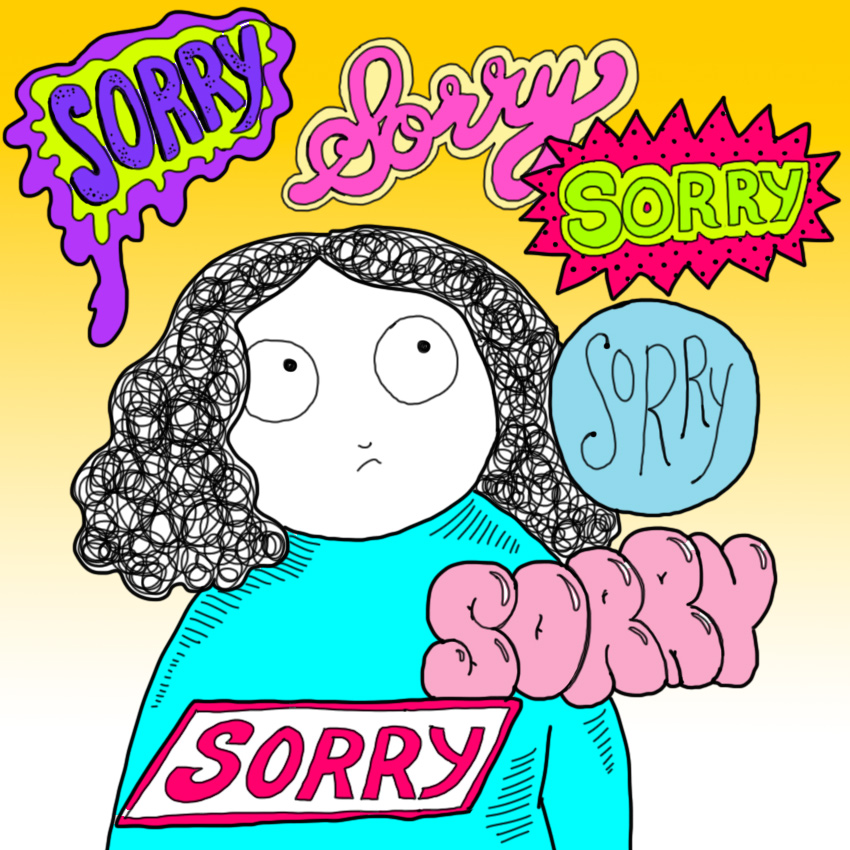
Again, there is a time and place for apologies. No one is perfect, and sometimes we have to admit that we were wrong and ask for forgiveness.
If you're saying sorry constantly, the phrase loses its meaning when it might really matter.
Save sorry for the times when you really need it, and it will go a long way.
7. You're Setting A Bad Example
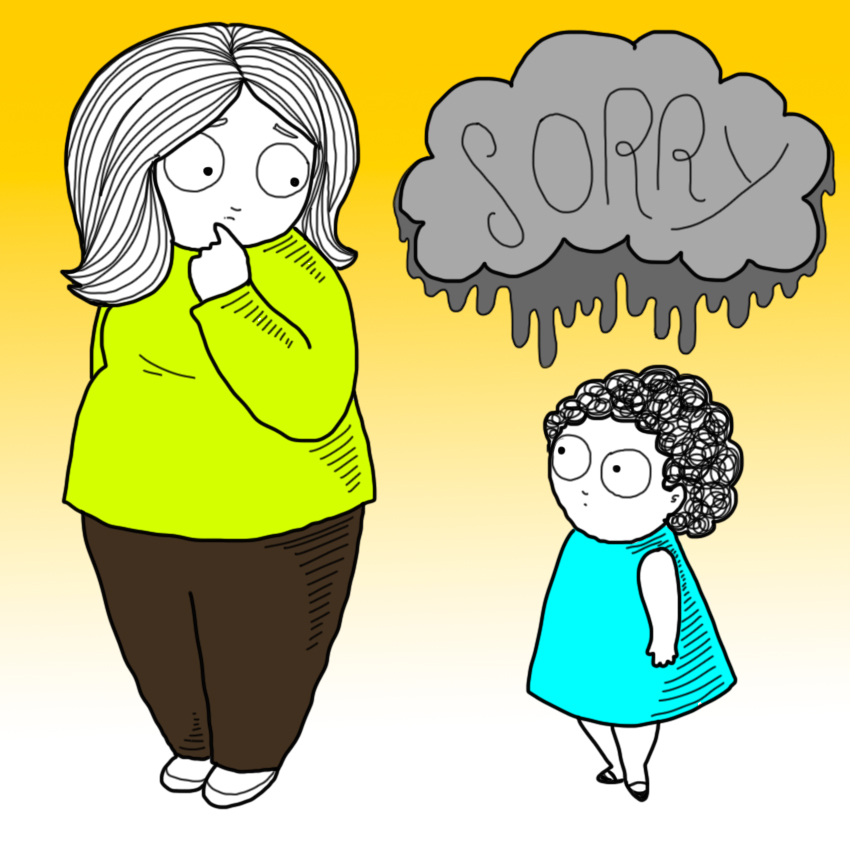
If you're a mom or a role model of any kind, you have to pay extra attention to the example you might be setting.
Chances are, you don't want your daughter to constantly feel like she's doing something wrong — or to come across as weak.
Over-apologizing is a hard habit to break, so nip it in the bud, and keep the next generation in mind.
8. Silence Can Be Golden

We all speak without thinking from time to time. A lot of people say sorry as a filler phrase in situations where they don't know what else to say.
The truth is, we don't always have to have something to say. Silence can give us an opportunity to reflect and think of the right thing to say, or it can just be peaceful in itself.
Try Replacing It With Another Phrase

The truth is, we are often trying to say something when we say sorry. Oftentimes, it's just not the appropriate word choice.
Next time you accidentally bump into one, just say excuse me. Or, instead of being sorry something took so long, just say thank you.
There are a lot of different ways to express appreciation or fault that don't come with all of the sorry strings attached.
Be sure to SHARE this article with someone who likes to say sorry a little too much!




